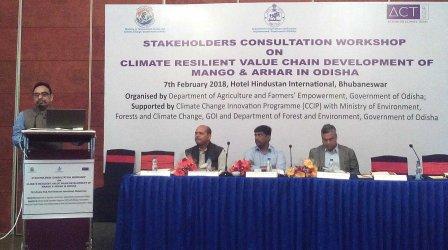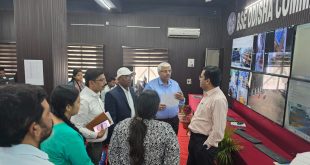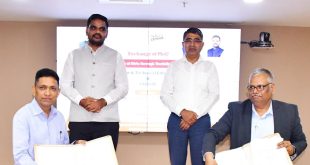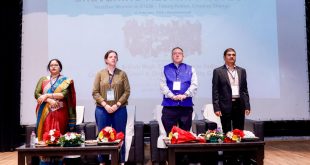Bhubaneswar: The Odisha government on Wednesday said the income of farmers cannot be doubled without focusing on other crops like pulses and horticulture as well as value addition of the produce.
“Due to maximum focus on paddy cultivation, the focus on other crops has been reduced in Odisha and currently we have to depend on other states for several agricultural products,” said Agriculture secretary Sourav Garg.
Inaugurating the workshop on climate resilient value chain development of mango and arhar, Garg recognized the chaos caused by climate change.
However, he was quite optimistic to highlight preparedness of the government in creating resilient seed infrastructure, resilient infrastructures for storage and transports, improvement in contingency planning and promotion of climate resilient crops to better adapt to climate change.
The Climate Change Innovation programme (CCIP) funded by Department for International Development (DFID), UK has been working in partnership with the government of Odisha since 2014 to integrate climate change into policies, plans and budgets.
It also aims to contribute to Odisha’s capacity to attract and leverage climate change-related investment. The stakeholder consultation was organized on Climate Resilient Value Chain Development with the Department of Agriculture and Farmers’ Empowerment for a deeper understanding of the context, opportunities and challenges for climate change governance in Agriculture in Odisha.
Introducing the project “Adapting to Climate Change in Agriculture: Climate Resilient Agriculture Practices” MD CTRAN Dr Ashok Singha said that the project intends to strengthen the capacity of the Agriculture Department to design, and disseminate climate resilient agriculture practices and value chains of mango and arhar through extensive handholding support for design and training at various stakeholder levels both within the government and at the farmer level.
He also pointed out that climate change could reduce annual agricultural incomes in the range of 15% to 18% on average, and up to 20% to 25% for un-irrigated areas. He said that it is possible to increase the income of the farmers in field crops like pulses by 5-6% and in fruit crops by 9-10% in Odisha if they are sensitized properly.
Dr SS Dey, MD APICOL highlighted various government schemes for value addition in mango and pulses.
Agriculture and Food production director M Muthukumar highlighted the strategy the government of Odisha is adopting to reduce post-harvest loss and increase the income of the farmers.
S Kar, Dy CEO ORAMAS highlighted challenges in the marketing of agricultural produces.
DGM Nabard, P K Mahapatra highlighted various aspects of value chain financing in mango and their successful initiatives in FPOs and WADI programmes.
He urged the entrepreneurs/start-ups to come forward and avail the finance in attractive terms.
About 10 participants from the industry, farmers, academics, media personnel, civil society organizations, and bankers attended the event.
 Update Odisha-Latest Odisha News I Breaking News Get latest news on Odisha, Govt. Jobs, OSSC, OPSC, Entertainment, Crime, Sports, and Education
Update Odisha-Latest Odisha News I Breaking News Get latest news on Odisha, Govt. Jobs, OSSC, OPSC, Entertainment, Crime, Sports, and Education



